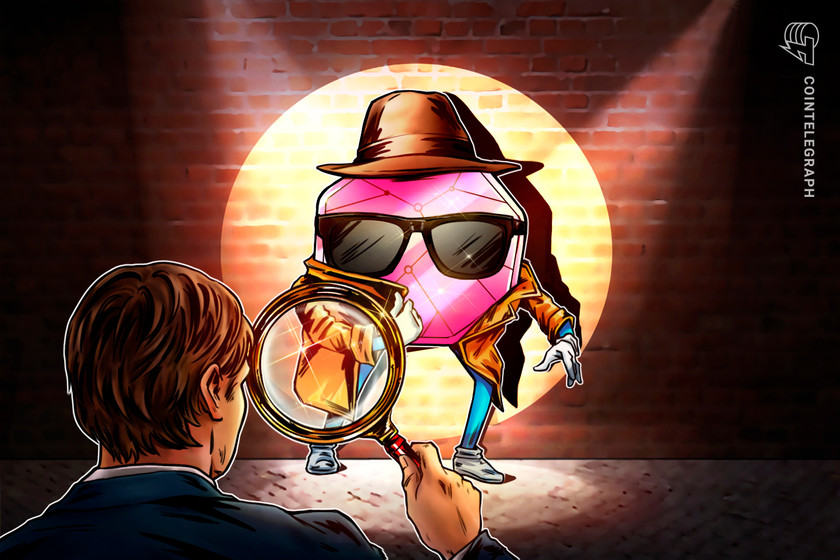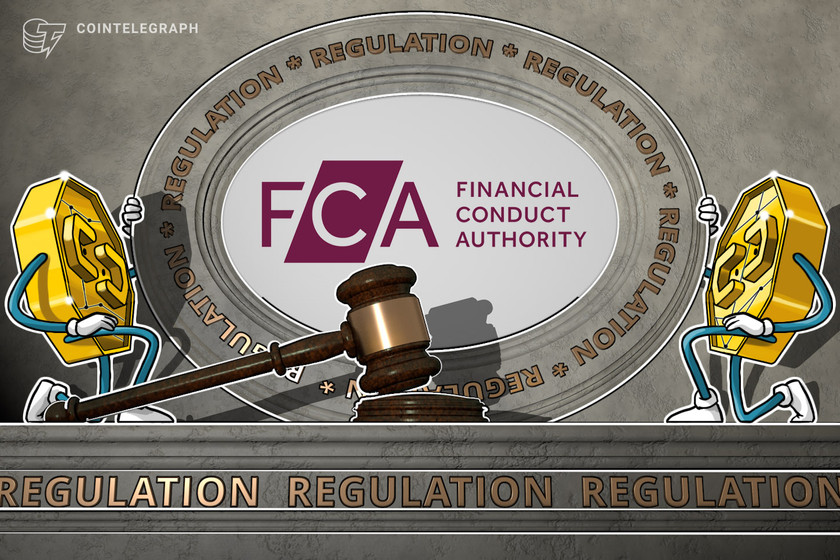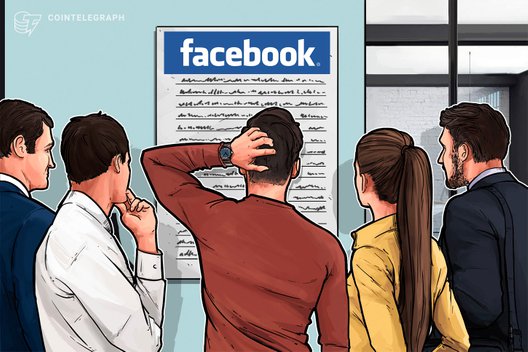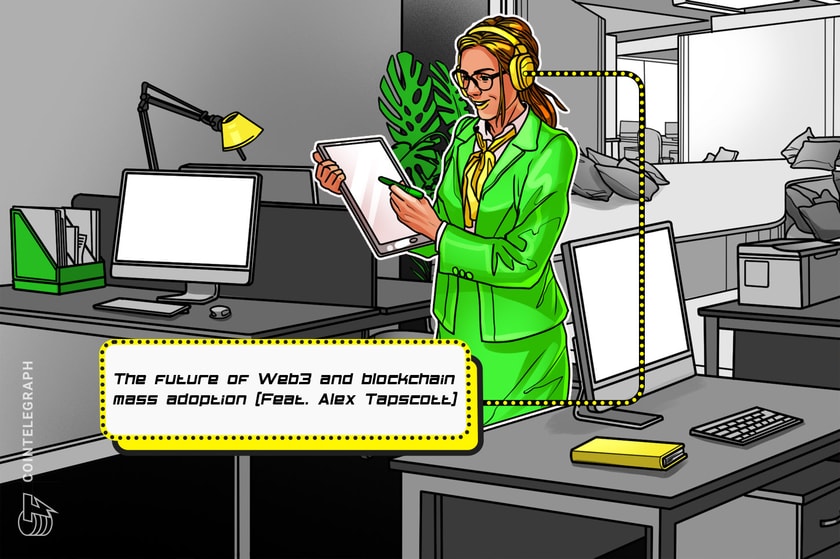Could blockchain end bitter vote-rigging disputes once and for all?

From the United States to Uganda, allegations of vote rigging have become part and parcel of elections worldwide.
Some of these claims are legitimate, with strongmen leaders suppressing the will of the people in a desperate attempt to cling on to power. But in other cases, such accusations are made with little evidence. Fake videos swirl online that paint a picture of manipulation on an industrial scale — depicting a world where ballot papers are dumped in bins.
Whether true or false, even the mere suggestion of vote rigging is enough to undermine confidence in the democratic process — dividing communities and triggering violence, as we saw at the U.S. Capitol back in January. A recent poll performed by Morning Consult and Politico suggested that just 33% of Republican voters now trust U.S. elections.
In this age of uncertainty, talk has inevitably turned to how blockchain can help modernize elections — amid hopes that this technology can deliver a sense of finality to proceedings. Proponents also believe these immutable databases could also enable national votes to be run far more efficiently. We often take elections for granted, yet forget about the sheer manpower and organization that’s required to ensure tens of millions of people can vote on the same day.
But it isn’t enough to just say the word “blockchain” and trust that the pain points in global elections can be resolved. Instead, a great deal of thought is required to determine how this technology should be applied. Should voters be casting their ballots electronically, meaning their choice is automatically recorded on one of these networks, or should the technology be brought in when results are being validated?
A flurry of blockchain-based voting systems have emerged in recent years — including the likes of Votem, Voatz and Horizon State. Some have struggled to achieve adoption, while security vulnerabilities have been uncovered in others.
Blockchain ballots
When it comes to the prospect of voting on the blockchain itself, some academics have expressed fears that this technology might not be the silver bullet people are hoping for. A November 2020 paper from the Massachusetts Institute of Technology warned claims that blockchain would increase election security are “wanting and misleading.”
The four co-authors cast doubt on whether voting from a computer or smartphone would make the process more convenient and accessible for the public — with some studies suggesting that it might have “little to no effect on turnout in practice.” They also argued that malware and denial-of-service attacks could undermine a person’s ability to cast their ballot. Paper and a pen may be old fashioned, but at least it can’t be commandeered by a hacker.
“Online voting systems are vulnerable to serious failures: Attacks that are larger scale, harder to detect, and easier to execute than analogous attacks against paper-ballot-based voting systems. Furthermore, online voting systems will suffer from such vulnerabilities for the foreseeable future given the state of computer security and the high stakes in political elections,” they wrote.
Even if blockchain technology was rolled out nationwide in a major vote, polling places would still need to be dotted across the country to cater to those who don’t have the technology or knowhow to cast their ballot digitally.
However, such criticism doesn’t necessarily mean that blockchain should be written off altogether — and that these cutting-edge networks have no place in the electoral system.
Counting on blockchain
Free TON is one community that has been looking into this issue in greater depth — and rather than devising a system to ensure blockchain is used during voting, it is working to create software that delivers value after voting.
In November 2020, a contest was held to produce the specifications for software that would pave the way for votes to be audited in a crowdsourced, tamperproof fashion. Crucially, this technology would enable anyone to verify the counts of existing election authorities — helping to boost confidence in the final results.
Luca Patrick, who ended up winning the contest, created specifications for software that is tailored toward Latin American countries such as Guatemala, where vote rigging claims have gone hand in hand with political instability. He received 30,000 TON Crystals for his contribution.
“The election process is such an obvious problem in so many countries. I’ve been thinking of solutions and their different applications for a few years now. When I saw that I could actually put some of them into action through Free TON, I was quite excited,” he explained.
Game mechanics are a key part of his concept, where those counting the results mine tokens which are locked up. Those who check the vote counters’ work then unlock these digital assets if the results are correct — an on-chain model that rewards honesty.
The next stage of the process will focus on bringing Luca’s concept to life — and a contest has been launched to find the team that will be responsible for development and following the specification closely.
For Carlos Toriello, a Free TON jury member who backed Luca’s winning entry, the magic of his proposal centered on how countries wouldn’t require existing voting systems to be changed — nor does it attempt to introduce electronic voting.
“There is too much waste by elections authorities that haven’t realized that blockchain can save them millions while also dramatically increasing the speed of independent audits,” he added.
Toriello has been campaigning for this sort of technology as part of a wider initiative called Fiscal Digital, following concerns of voter fraud that arose in 2019’s Guatemalan election. The group’s goal is to publish fully audited election results that are replicable before election authorities publish their own — and it has the ambition of verifying results in real time by 2023. It’s hoped that Free TON’s infrastructure will help turn this target into a reality.
He explained: “This year, Latin America will see presidential elections in Chile, Perú, Nicaragua and Honduras — while there will be legislative elections in Mexico, El Salvador and Argentina. I believe we will see much violence as a result of lack of trust in the voting systems, giving autocratic leaders the excuse they need to curtail democratic rights. Much of this could be prevented if better technology was used to enable anyone to verify election results.”
Faster results and reduced cost would be compelling reasons for countries to embrace blockchain in the vote auditing process. The fact that anyone can verify results for themselves could also help restore much-needed confidence in an election’s outcome — and in some countries, this could end up saving lives.
Disclaimer. Cointelegraph does not endorse any content or product on this page. While we aim at providing you all important information that we could obtain, readers should do their own research before taking any actions related to the company and carry full responsibility for their decisions, nor this article can be considered as an investment advice.









